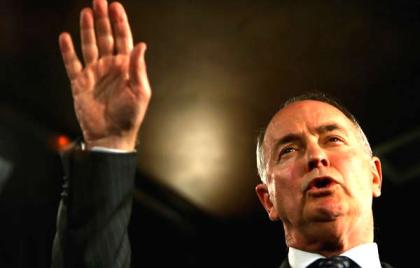Is Peter O’Neill Julia’s man? Australia's left thinks so

By PATRICK O'CONNOR PAPUA NEW GUINEAN prime minister Peter O’Neill recently made his first official visit to Australia since his win in August’s national elections. O’Neill’s appearances in Canberra and Sydney demonstrated why the Australian government regards the prime minister as their man. He rejected any suggestion that Papua New Guinea was in danger of developing close strategic and military ties with China, and assured Australian investors in the mining and energy sectors that their interests would be upheld. On Monday, O’Neill participated in the PNG Mining and Petroleum Investment Conference in Sydney. The annual event was this year attended by a record 1,300 delegates, including executives from many of the major transnational giants including ExxonMobil, Rio Tinto, and Xstrata, as well as the multitude of smaller Australian, American, European, and Asian corporations now seeking to exploit PNG’s vast reserves of oil and gas, gold, copper, nickel, and other m




